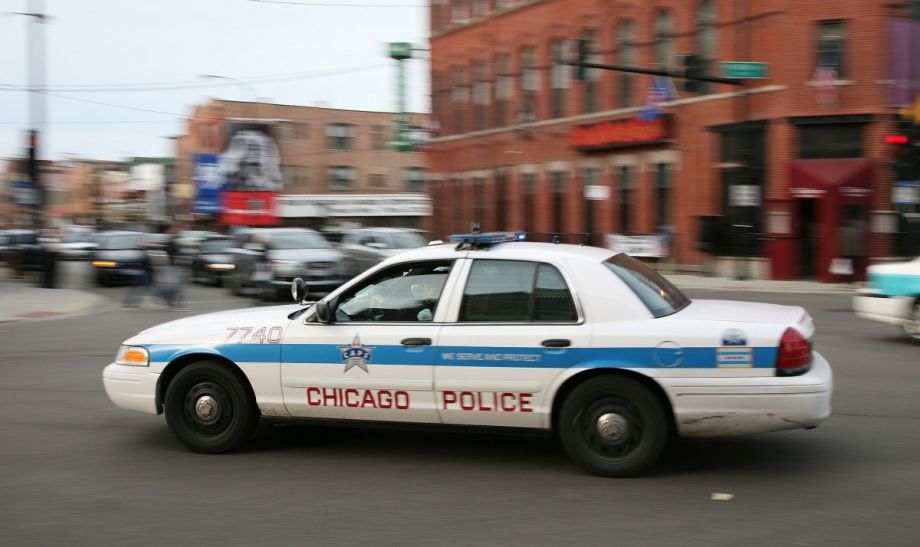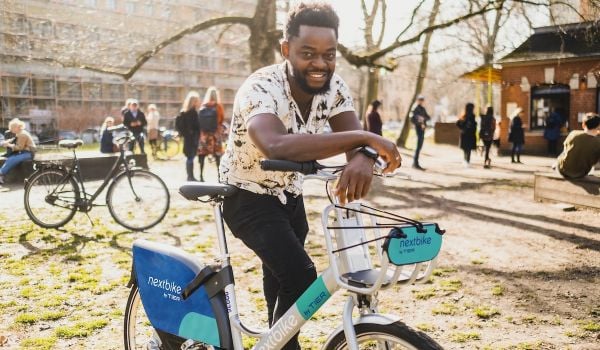Like many cities in the U.S., Chicago’s bike infrastructure is notoriously clustered in wealthier, whiter neighborhoods. Now another — but related — system of inequity is getting national attention: bike tickets.
From 2008 to 2016, more than twice as many citations were written in African-American communities than in white or Latino neighborhoods, according to the Chicago Tribune. The paper conducted a review of police statistics to get the figures and found that of the top 10 areas for bike tickets, seven are majority African American and three are majority Latino.
“Not a single majority-white area ranked in the top 10, despite biking’s popularity in white areas such as West Town and Lincoln Park,” according to the paper, which characterizes the differences in enforcement as “stark.” Between Jan. 1 and Sept. 22 of last year, for example, “321 bike tickets were issued in the majority African-American, low-income area of Austin, compared with five in white, wealthy Lincoln Park.”
The paper also notes that enforcement for bike citations has increased across the city in the last few years, from 468 total tickets in 2010 to 3,301 in 2015. But the increase was drastically magnified in some majority black areas — citywide, the 2015 number was about seven times higher than the 2010 number, but in North Lawndale it was 23 times higher.
The most common citation is for riding on the sidewalk. As Next City has previously reported, Chicago’s inequitable network of bike infrastructure is well documented:
Last September, the League of American Bicyclists released a report examining the distribution of Chicago’s existing 200 miles of bike lanes and 36 miles of multi-use trails The report uses GIS to overlay the bike infrastructure network on demographic maps showing where Chicago’s black and Latino populations do and do not live. There is some disjointed bike infrastructure in predominantly black and Latino neighborhoods on the South and West sides of the city. But the bulk of the infrastructure network is concentrated in areas with the lowest percentile of black and Latino residents.
According to the Tribune, the higher number of tickets in South and West side areas could be caused, in part, to this unequal spread. A lack of protected bike lanes (or just bike lanes) could be forcing cyclists onto the sidewalks.
But some bike advocates don’t believe it’s that simple, and have “expressed concern that police may be unfairly targeting cyclists in black communities while going easier on law-breaking cyclists in white areas.”
“I don’t know what possible rational explanation there could be for the police to write more bike infraction tickets in neighborhoods that have less — less money, less businesses, less bicycle infrastructure than in other communities,” Brendan Kevenides, a lawyer who specializes in bike cases, told the paper.
An alderman who is a former police sergeant told that paper that he found the disparity “incredible,” and wondered “how many cyclists were stopped but not ticketed in Lincoln Park, compared with those stopped and ticketed in Austin.”
As Next City’s Josh Cohen wrote last year — and Chicago seems to be exemplifying — advocating for bike equity can’t be as simple as “build more bike lanes,” though, of course, that needs to be part of the formula. Bike advocacy organizations and local nonprofits need to be more diverse (and actually reflect the neighborhoods they’re advocating for) and take into account any local issues that could arise.
“Hundreds of years of intentional violence against and disinvestment in people of color have left us with segregated neighborhoods and staggering disparity,” he wrote. Add to that disparity a police force with a history of systemic racism.

Rachel Dovey is an award-winning freelance writer and former USC Annenberg fellow living at the northern tip of California’s Bay Area. She writes about infrastructure, water and climate change and has been published by Bust, Wired, Paste, SF Weekly, the East Bay Express and the North Bay Bohemian
Follow Rachel .(JavaScript must be enabled to view this email address)















